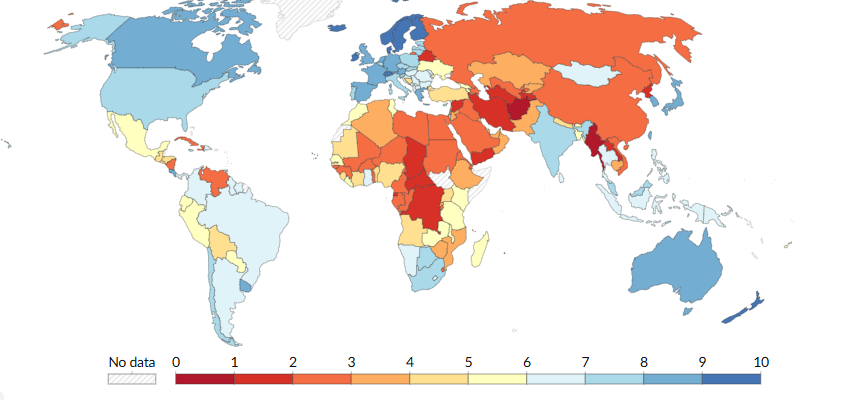
How Governance Shapes Healthcare: The Impact of Democracy and Corruption on the Global Physician Workforce
Imagine two countries. One boasts a robust democracy, characterized by transparency, public participation, and trust in government institutions. The other struggles with rampant corruption, where public funds meant for healthcare often disappear, leaving hospitals underfunded and doctors demoralized. These differences are more than political—they shape the healthcare workforce, influencing who gets care and how often.
A recent study by Kirpalani and Yilmaz (2024) unpacks how democracy and corruption impact the density of physicians worldwide, offering insights for achieving Universal Health Coverage (UHC).
Why Democracy and Corruption Matter for Health
Healthcare systems don’t exist in a vacuum—they are deeply influenced by governance. Democratic systems often foster transparency, accountability, and equitable resource distribution, all of which support healthcare infrastructure. In contrast, corruption undermines these efforts, diverting funds and eroding public trust.
This study analyzed data from 134 countries between 2020 and 2022, examining how governance metrics like the Democracy Index (DI) and Corruption Perceptions Index (CPI) relate to key healthcare workforce outcomes. Their findings reveal a clear pattern: higher levels of democracy and lower levels of corruption are associated with a greater density of physicians, even after accounting for healthcare spending.

The Numbers Speak: Key Findings
- Physician Density: Countries with higher DI scores (more democratic) and higher CPI scores (less corrupt) had significantly more physicians per 10,000 people. For instance, a one-point increase in CPI was linked to a 0.43 increase in physician density—a substantial difference in countries with scarce healthcare resources.
- Specialty Ratios and Gender Representation: Interestingly, neither democracy nor corruption significantly influenced the generalist-to-specialist ratio or the percentage of female physicians. These metrics, the authors suggest, may be shaped by factors beyond governance, such as cultural norms or specific national policies.
- Healthcare Spending: While domestic health expenditure positively influenced physician density, democracy and corruption had independent effects, underscoring the unique role of governance.
Governance in Action: Lessons from the Field
The study’s findings resonate with real-world examples. In South Korea, democratic governance enabled a rapid and transparent response to the COVID-19 pandemic, mobilizing healthcare workers efficiently and maintaining public trust. On the flip side, Nigeria’s healthcare system illustrates how corruption depletes resources, leading to underfunded facilities and a demoralized workforce. These contrasting cases highlight how governance can make or break healthcare delivery.
Practical Implications: Bridging Policy and Practice
For policymakers, the message is clear: strengthening governance isn’t just a political goal—it’s a health imperative. Here’s how:
- Promote Transparency: Implementing anti-corruption measures, such as transparent procurement processes and robust auditing systems, can ensure that healthcare funds reach their intended destinations.
- Invest in Public Participation: Democracies thrive on public engagement. Involving communities in healthcare planning can lead to more equitable and effective policies.
- Support Global Health Goals: International organizations like the WHO can advocate for governance reforms that align with health objectives, providing technical support and fostering collaboration among member states.
What’s Next? Unanswered Questions and Future Directions
While this study sheds light on the link between governance and the healthcare workforce, it also raises important questions:
- How do cultural and regional factors interact with governance to shape health outcomes?
- Could longitudinal studies reveal causal relationships between changes in governance and workforce metrics over time?
- How can nations with low governance scores still achieve workforce success, as some outliers suggest?
Further research could also explore gender and specialty dynamics, examining how specific policies influence these aspects of the workforce.
Join the Conversation
What do you think about the relationship between governance and healthcare? Does your work or community reflect these findings? How can we balance global health goals with local governance challenges? Share your thoughts in the comments or join the discussion on social media.
Stay Ahead of Public Health Advances!
Get the latest scientific insights delivered straight to your inbox. Our free weekly newsletter breaks down the most important research in public health so that you can make informed decisions. Subscribe today and stay informed! Click below!



